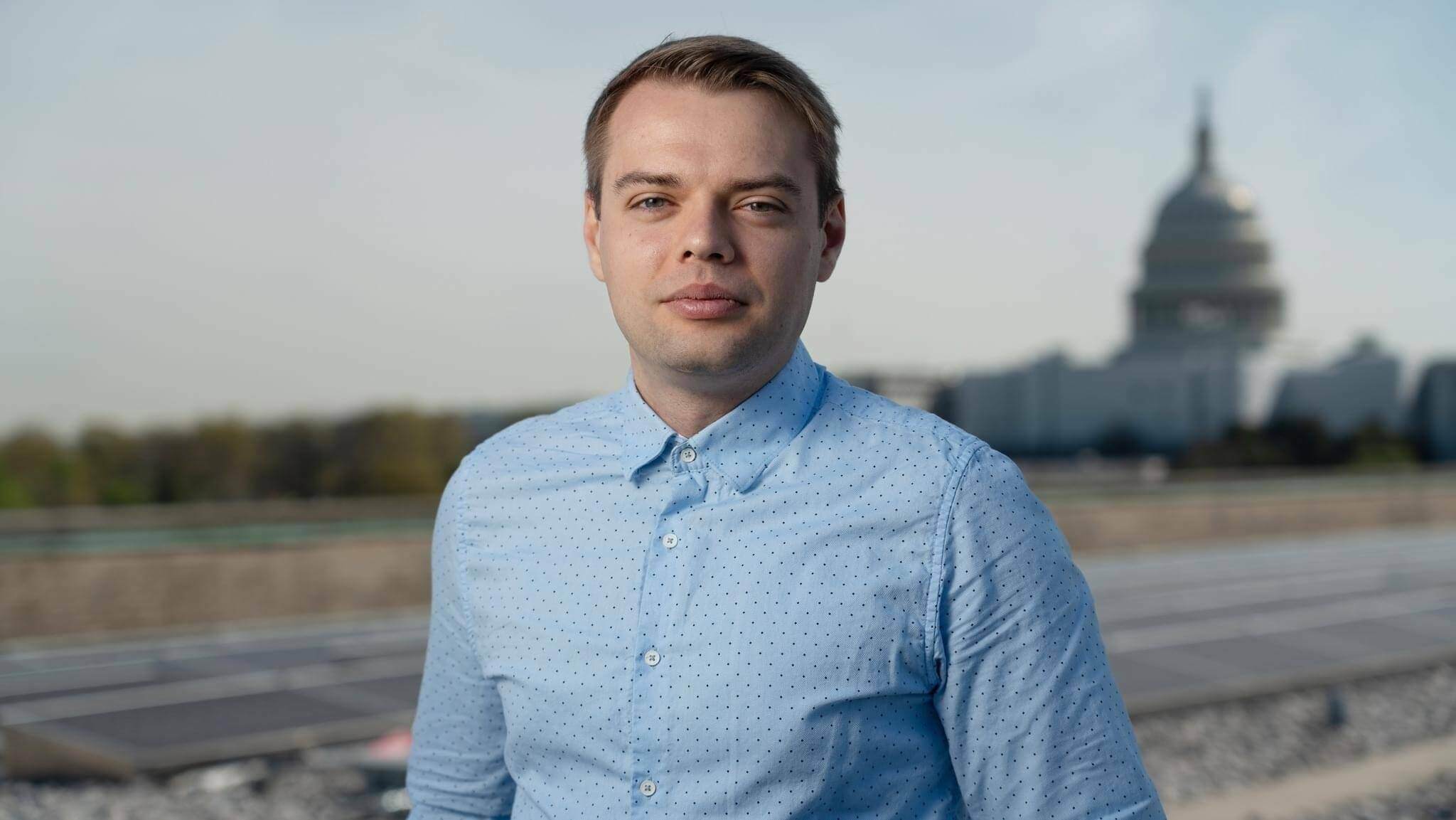Oleksii Kovalenko ’19MGA grew up in eastern Ukraine in Mariupol, a town now occupied by Russian authorities. One month after the full-scale Russian invasion of Ukraine, he joined Voice of America in March 2022 as an international multimedia journalist based in Washington, D.C.
Kovalenko completed a concentration in international peace studies during his two years at Notre Dame. He says a critical component of strategic peacebuilding is truth telling.
Can you describe your journey to Notre Dame?
I grew up in Mariupol. Right now, unfortunately, we have no access to that town. I did my undergrad there at Mariupol State University, studying international relations and political science. Then I moved in 2014 to western Ukraine to Lviv, and I studied at the Ukrainian Catholic University. There I studied journalism; it was my master’s program in journalism. After that I worked for several mainstream media outlets in Ukraine, including a magazine that is called Focus.
Why did you apply to the peacebuilding program at the Keough school?
It was the year 2017, already after the annexation of Crimea and after Russia invaded eastern Ukraine. For me Notre Dame and specifically that program in peacebuilding, it was a great opportunity to merge my experience that I had working as a journalist in Ukraine — covering the war in Ukraine, covering the annexation of Crimea and occupation of eastern Ukraine — to combine it together with more theoretical knowledge in peacebuilding and conflict resolution. I did my capstone project on Russian disinformation and propaganda.
How bad is Russian disinformation and propaganda?
Probably almost every article that is published by Russian-owned media or statements from Russian authorities [is disinformation and propaganda]. The whole reasoning behind the war, the full-scale Russian invasion, was just fueled by disinformation and propaganda — years of disinformation and propaganda that Russian authorities and Russian-owned media outlets were feeding to Russian people.

What is Voice of America?
If an international reader reads this interview, he will most likely know Voice of America because it is the largest international broadcaster that exists in the United States. It is a United States-funded agency, but it is important to say that Voice of America has never been influenced or has never been a promoter for the United States government. One of our missions is providing truthful and objective news coverage. [We do this] in 38 languages, and the total audience of Voice of America is over 300 million people around the world.
Our agency was founded during the Second World War, and back then the mission of Voice of America was to counteract Nazi Germany. The mission changed quite a bit after the end of the Second World War, and during the Cold War Voice of American became an instrument in the ideological and informational struggle against the Soviet Union.
What do you do as part of the Voice of America Ukrainian service?
We cover all the updates of the Russian invasion in Ukraine, Ukrainian resistance and Western aid to Ukraine. All those messages, all those stories, when they’re getting translated into all those different languages, the audience of those articles enlarges big time. Daily I might cover different topics. It all depends on what is what is happening in Ukraine and here in Washington, D.C. But my specific topics of interest that I cover all the time is war crimes and accountability and justice for the war crimes committed by Russian soldiers in Ukraine.
Do you still rely on your former Notre Dame classmates for support?
In my master of global affairs, we had about 45 students representing I don’t remember how many countries, but I remember that these were countries from every continent. I remember when the full-fledged Russian invasion started in February 2022, I remember my classmates sending me messages from everywhere around the world — messages of support and messages of care asking how I was doing and how my family was and if everybody was safe.
Interview by Peter Breen, a senior Program of Liberal Studies major and journalism minor. He is this magazine’s fall semester intern.